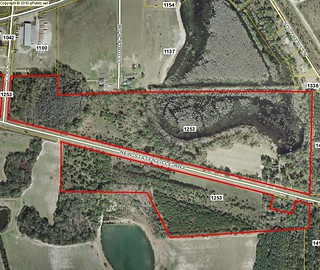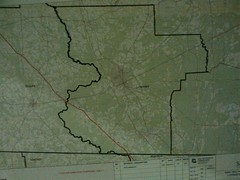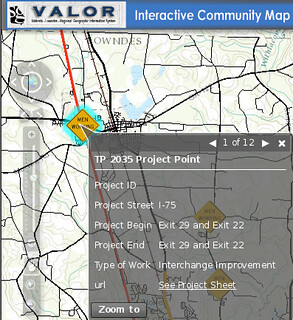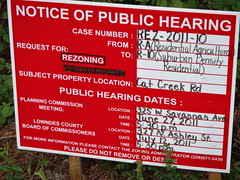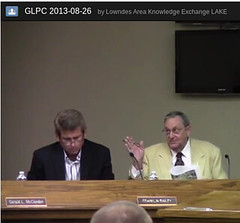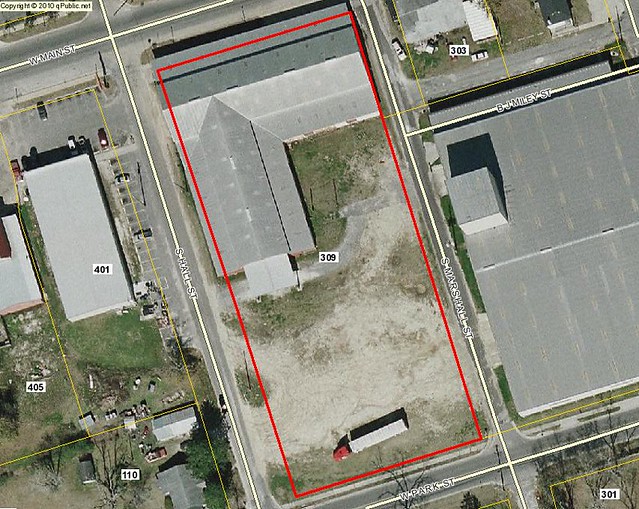 So all our tax money the county spent on the
alleged county attorney
arguing
before the state Supreme Court was wasted.
The remaining law seems to say by 120 days from Monday
the cities and the county need to come to an agreement.
So all our tax money the county spent on the
alleged county attorney
arguing
before the state Supreme Court was wasted.
The remaining law seems to say by 120 days from Monday
the cities and the county need to come to an agreement.
Kay Harris wrote for the VDT yesterday,
Lowndes LOST in limbo:
Supreme Court tosses key amendment,
In a ruling issued Monday, Oct. 7, the Supreme Court of Georgia
declared a 2010 amendment to the Local Option Sales Tax Act
unconstitutional, reasoning that the amendment would delegate a
legislative function of allocating tax proceeds to the judicial
branch of government, a violation of the Separation of Powers clause
of the Georgia Constitution.
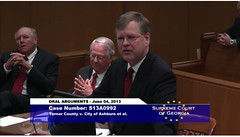 For Lowndes County, the ruling effectively renders the lawsuit moot
that was filed by the five cities against the county in September
2012.
For Lowndes County, the ruling effectively renders the lawsuit moot
that was filed by the five cities against the county in September
2012.
The Supreme Court’s ruling came in the case of Turner County vs. the
City of Ashburn over a dispute in splitting the proceeds from the
one cent sales tax, the same issue in the Lowndes lawsuit. By
declaring the portion unconstitutional that would allow a judge to
decide how to allocate the tax dollars between the entities, the
issue is now in limbo for several counties in Georgia.
 You may recall that
former Chairman Ashley Paulk
wasn’t interested in discussing proposals from the cities,
and said from before
the LOST negotiations began
that he expected it to go to arbitration.
You may recall that
former Chairman Ashley Paulk
wasn’t interested in discussing proposals from the cities,
and said from before
the LOST negotiations began
that he expected it to go to arbitration.
 This was the same Chairman Ashley Paulk who put SPLOST VII on the ballot
a year early and
lost it.
I wonder how much input County Manager Joe Pritchard had into these two losing decisions?
This was the same Chairman Ashley Paulk who put SPLOST VII on the ballot
a year early and
lost it.
I wonder how much input County Manager Joe Pritchard had into these two losing decisions?
At least SPLOST VI hasn’t expired yet
and there’s time for the voters to go again on
SPLOST VII in November.
What happens now with LOST? Continue reading →
Hahira re-zoning issue for land adjacent to Hahira Elementary School intended for apartment construction. Several citizens have expressed concerns for increased traffic in a school area and reduced property values. If you are for or against you need to be at the Planning Commission meeting Monday 10/28/13 and at the Hahira City Council meeting Thursday 11/07/13 to voice your opinion. You do not have to be a city resident to comment and parents of school children can express their traffic & safety concerns if desired.
